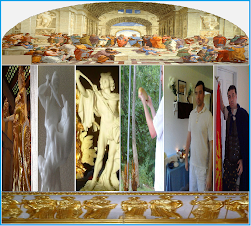The first thing to remember is that some of our wants and desires may not be granted for various reasons. As much as we may think otherwise, it might not be the best route for us at that time. You might think you would really and truly be happy and better off, but the Gods know more than we do. You are where you are because of your choices, but also because of your Fate. All lives have beauty, but you'll never see that if you don't allow your eyes to see beyond distractions. As I have said in the past, there's beauty in everything if you have the right eyes. Those eyes come from the Gods. They will show you the beauty, wonder and peace in your life if you allow them. Everything has its reason, even if it might not make that much sense to you at present.
Finally, at least to my mind, a sure way to see that I am favored by the Gods is that I am still alive, healthy and doing well. We strive for the various materials of life so much that we don't realize how precious life itself is. We don't realize that we are not entitled to life in that there was no guarantee that we would be born, that we would be the ones chosen to live. Life is a gift that the Gods were good enough to grant us. And the fact that I have life, health, a good home, a loving family, and plenty of food, tells me that the Gods are not gathering to be against me at all. If the Gods were against me, I wouldn't have a leg to stand on. If the Gods didn't love me, I wouldn't be there. And if they didn't favor me, my life would be far harder than it is.
Your beautiful and continuous life itself is the proof that you are favored by the Gods. You may not be Fated to conquer the world, or even your own City. But you are thriving in the sense of life itself. That's enough to be grateful for. Even if you are sick or down on your luck, that still does not mean you are disfavored. Life always has its challenges, but that doesn't mean the Gods don't like you. The Gods are good and they always do good. And always remember, Hellenism is not about "will the Gods give me this or that," it's about living in harmony with the Gods and the Universe.
In the Goodness of the Gods,
I'll see you at the next Herm down the road,
Chris Aldridge.


















